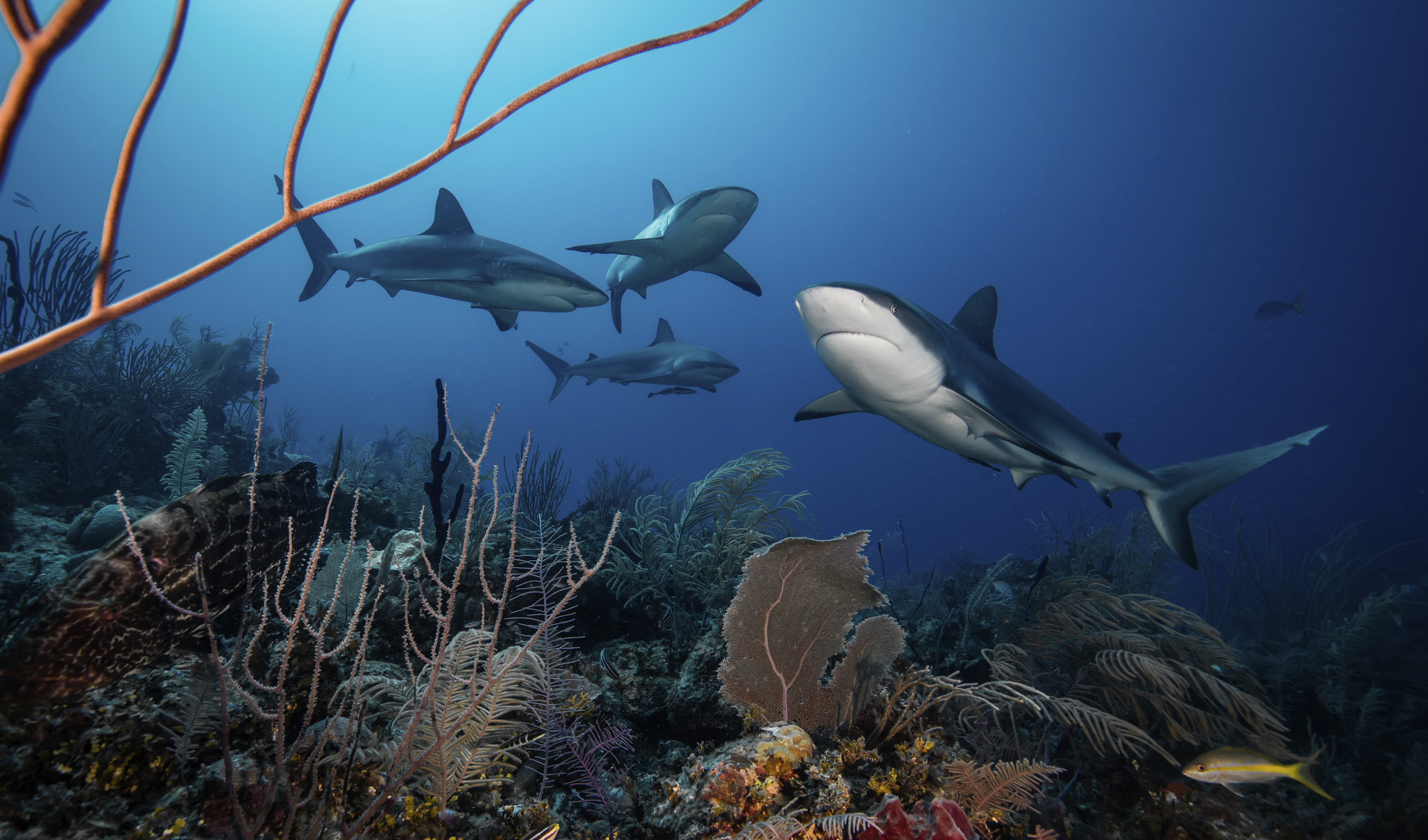Our Ocean Conference 2024: $9.1 billion pledged for ocean conservation

Caribbean reef sharks © Shark Conservation Fund / Philip Hamilton photography
23.05.2025
The tenth Our Ocean Conference, held in Republic of Korea at the end of April, marked a decade of global collaboration for ocean conservation. Under the theme “Our Ocean, Our Action,” the event gathered governments, NGOs (including many partners of ERF grantee Oceans 5), scientists, and private sector leaders to advance sustainable ocean governance. The conference culminated in 277 new commitments totalling nearly $9.1 billion, adding to the more than $160 billion mobilised since the inaugural 2014 conference. This achievement came despite the absence of the United States government, marking the first time the founding nation of the Our Ocean Conference did not participate officially.
A significant focus was placed on six priority areas: marine protected areas (MPAs), sustainable blue economies, climate change, maritime security, sustainable fisheries, and marine pollution. Additionally, the conference introduced “Digital Oceans” as a cross-cutting theme, exploring how digital technologies can enhance ocean conservation efforts.
Among all participating nations, blue economy initiatives received the largest share of funding, with 59 commitments totalling $6 billion. These initiatives included projects such as wetland restoration and efforts to decarbonise the shipping sector. Sustainable fisheries also emerged as a key focus area, drawing 51 pledges worth $1.1 billion. As the host nation, Korea led with the largest share of pledges—76 in total—mobilising $2.5 billion and announcing its ratification of the landmark High Seas Treaty.
However, experts noted more funding was required for MPAs, which, like previous years, received the lowest amount of funding among the six priority areas. A report by World Resources Institute indicates that MPAs have historically received the least funding of the six action areas, getting less than 4% of the funding allocated over the last 10 years.
The conference also served as a platform to assess the progress of commitments made over the past decade. According to the World Resources Institute, as of January 2025, approximately 43% of the 2,618 commitments made since 2014 had been fulfilled, with 38% in progress and 18% yet to commence.
Looking ahead, the outcomes of the Busan conference are expected to inform discussions at the upcoming Third UN Ocean Conference (UNOC3) in France in June 2025. UNOC3 aims to accelerate action to conserve and sustainably use the ocean and its resources, further supporting the implementation of Sustainable Development Goal 14 (Life Below Water) – one of the 17 Sustainable Development Goals established by the United Nations in 2015 as part of the 2030 Agenda for Sustainable Development.